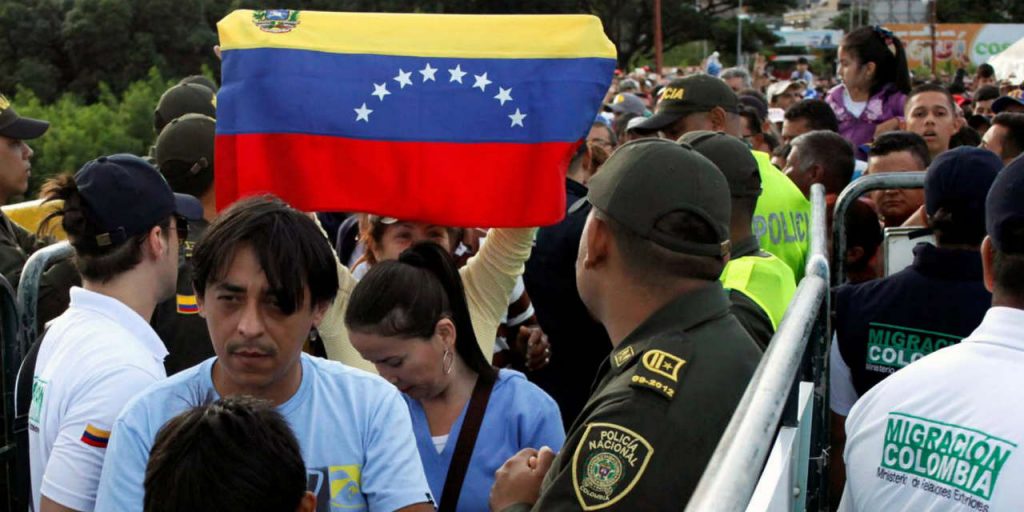On ongoing mass migration of Venezuelans added more than 200,000 new residents to Colombia’s capital alone, according to the country’s migration agency.
Migracion Colombia released a report on Wednesday after months of investigating the domestic impact of the crisis in the neighboring country.
According to the agency, 23.5% of at least 870,000 Venezuelan migrants moved to the capital Bogota.
Other parts of the country that are particularly affected by the mass migration are the border provinces Guajira and Norte de Santander where the main border crossings are.
Cities like Medellin and Cali have also become major recipients of Venezuelans trying to flee hunger and their increasingly authoritarian government.
Regional distribution of Venezuelans in Colombia
The information gathered by the migration agency comes from the border crossings and a census that was held earlier this year.
The census sought to find out how many Venezuelan citizens entered Colombia illegally, using one of the hundreds illegal border crossings between the two countries.
So far this year, more than 47,000 Venezuelan citizens sought emergency medical care. Last year, this was almost 25,000.
With the current influx, the authorities expect that more than a million Venezuelans will have found refuge in Colombia since the beginning of the crisis early last year.
International organizations like the United Nations and the Red Cross are providing emergency services to newcomers and also the United States sent tens of millions of dollars in aid.
Half of the Venezuelans estimated to be in Colombia registered with the so-called Administrative Registry of Venezuelan Migrants in Colombia (RAMV).
Of these Venezuelans registered with the RAMV, a quarter are minors.
More than 1.6 million Venezuelans received a provisional Border Mobility Card that allow people from the border region to cross the border to buy food and medical supplies.
The Venezuelan government has refused the entry of humanitarian aid, claiming this would be a way of hostile foreign powers to gain a foothold in the country.


